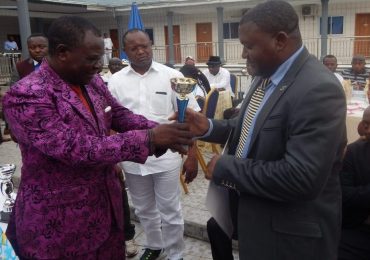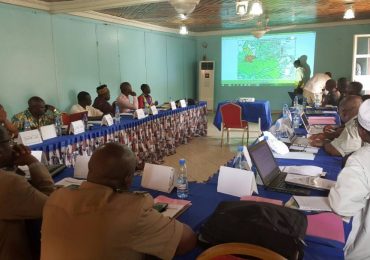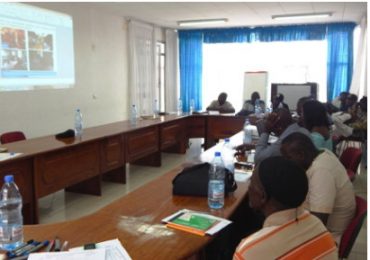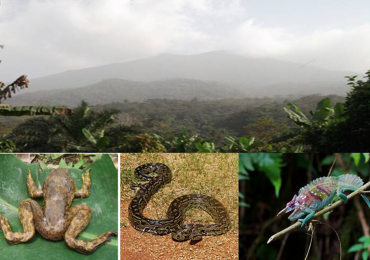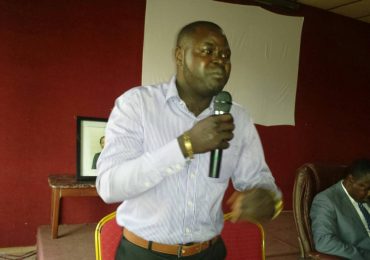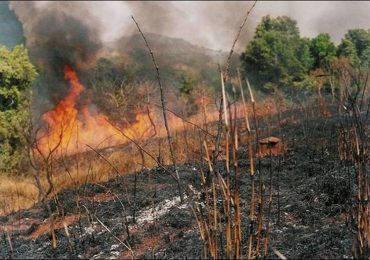Government has appointed the Environment and Rural Development Foundation (ERuDeF) to lead has just been appointed to lead the implementation of the National Access Benefit Sharing (ABS) Strategy. This appointment lifts the environmental NGO a notch higher on the rungs of conservation of endangered wildlife species and fragile ecosystems. In the following exclusive interview with The Green Vision’s Mkong Immaculate, ERuDeF CEO Louis Nkembi outlines the task ahead and the fallout from an ABS conference he attended in India.
GVN: ERuDeF has just been appointed to lead the implementation of the National ABS Strategy. How do you feel about this appointment? Were you expecting it?
Louis Nkembi: I am excited that the government of Cameroon is recognizing the work we are doing and making us one of the leaders in the development and implementation of the national biodiversity strategic plan. I think it is an honour for us. When you are working hard, you do expect someone to say congratulations somewhere along the line, though you may not know exactly when. I cannot say we were expecting it now, but it came now.
What is the task that lies ahead?
The National Biodiversity Strategic Plan (NBSAP2) is a huge document that is focused on the management of biodiversity and ecosystems in Cameroon. So I think it’s a huge task that is divided into several components and objectives that each of the leading organizations and institutions will individually and collectively assist the government to implement.
How is your relationship with the other NGOs appointed and how do you plan to work with them?
We are working with other goals and targets Leads as WWF, IUCN ICRAFT and WCS. Beside these international NGOs, we will also be collaborating with the other national NGOs such as the Cameroon Wildlife Conservation Society (CWCS) and the Centre for Environment and Sustainable Development in Central Africa. Collaboratively, we will be able to contribute towards the implementation of the NBSAP2.
The road is still long and the vision of ERuDeF is to stand out as the Champion of conservation in Cameroon and why not Africa in the next ten to fifteen years. But we cannot do this alone, we must work in collaboration with other actors in the world of conservation located in Cameroon and beyond.
I want to thank our partners; GEF Small Grants Program, the French Embassy of Cameroon, the government of Cameroon, Mane Foundation Enterprise, Man & Nature, V. Man Fils Company and local communities for their support towards the development of ABS in Cameroon.
You are just coming back from India, what took you there?
I was invited by a consortium of partners led by the United Nations’ University in Japan and the ABS Initiative in Germany to attend a conference on the Access and Benefit Sharing (ABS). ABS is a new concept developed by the Convention on Biological Diversity that stipulates that profits from the exploitation and use of natural resources from the developing world by developed world companies should be equitably distributed across the scale; from the producer community through the producer country right up to the user company and country.
India was chosen as the best location for this ABS conference because it has been involved in ABS projects over the last two decades, so we went there to live the experiences which India had gone through in the course of implementing the ABS policy.
What was your experience in India?
We were hosted by the Trans-disciplinary University and we also visited other companies involved in the ABS initiative. We visited communities that are practicing the ABS principle as well as some fishing communities. We also visited a community involved in the revitalization of the traditional rights varieties. We had colleagues from 23 other countries and we were able to share experiences on what is happening in our respective countries as far as ABS is concerned.
Based on your experience and exchange with other stakeholders in India, what can you say about the ABS initiative in Cameroon?
In comparison with the experience I had in India, I think India is far advanced. India is 20 years into ABS and Cameroon is just three years. We just signed the first ABS agreement in Cameroon this year so ABS in Cameroon is not yet well structured like that of India. We are still developing the governance system, so Cameroon is actually at the base.
How will your visit to India foster ABS and the general conservation drive in Cameroon?
I was in India with the Fon of Bamumbu, His Majesty Fon Lekunze, the community in which we are practising the first ABS initiative in Cameroon. We also went with the President of Cameroon Traditional Rulers (His Majesty Chief Mvondo Bruno) who doubles as the National ABS Consultant, who has also been involved in the ABS process for a while. I do think that together, we are going to use the output of the India trip as the input into strengthening the governance system of ABS in Cameroon.
It was interesting to learn that while in India, ERuDeF was appointed as the target head for the ABS process in Cameroon by the Minister of Environment, Protection of Nature and Sustainable Development. So I think our trip to India was timely, because we are going to use the experiences in developing an effective governance system for ABS in Cameroon.
As the founder of the ERuDeF Institute of Biodiversity and Non-Profit Studies, how will your interactions with university dons in India impact your institute?
I think the very first impact is that we are incorporating ABS as a program into the ERuDeF Institute. It is not yet being taught in any of the Cameroonian universities, so this will be the first institution that will have a curriculum developed on ABS in Cameroon. Secondly, I had an exclusive exchange with the Vice Chancellor of the Trans-diciplinary University in India that has been involved in ABS for 15 years. I am looking forward to a very strong partnership with this University and based on this we will be able to develop a strong ABS system in Cameroon




